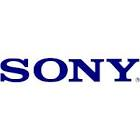$SONY
#Sony #AkioMorita #CorporateCulture #BusinessLeadership #JapaneseCompanies #StockMarket #LongTermGrowth #EmployeeWelfare #TechInnovation #WorkplacePhilosophy #USMarkets #GlobalBusiness
Sony co-founder Akio Morita left an indelible mark on the business world and corporate governance, famously championing a philosophy that treated companies as families rather than profit-driven machines. When Sony took the historic step as the first Japanese company to list on the US stock market in 1970, it wasn’t only a calculated financial move; it was also a cultural statement. Morita believed this international expansion could deliver long-term benefits to stakeholders and employees alike, reflecting his focus on sustainable growth. Known for his disdain for mass layoffs—even during economic downturns—Morita opposed what he viewed as short-termism in business. His leadership exemplified a commitment to nurturing talent and ensuring financial stability by investing in employees’ well-being. This perspective starkly contrasts with modern corporate strategies, where financial performance metrics often dominate decision-making.
Under Morita’s leadership, Sony was positioned as a pioneer in technological innovation and cultural exchange. At the heart of his vision was a firm commitment to trust and loyalty between the company and its employees, which he likened to familial bonds. While such ideals inspired a generation of leaders, they also faced challenges in the later decades. Rapid global competition and shifting consumer demands in the 1990s and early 2000s forced Sony into restructuring, calling for tighter fiscal discipline that didn’t always align with Morita’s ideals. For instance, while Sony still innovated with flagship products like VAIO laptops and Bravia TVs, the company’s dominance waned in sectors like mobile technology and gaming consoles. Meanwhile, US corporations—seemingly favoring cost-cutting measures such as workforce downsizing to protect shareholder returns—began defining the competitive landscape.
In today’s market, the tension between shareholder priorities and employee-centered management philosophies remains significant. Companies like Sony must benchmark against more agile competitors and industries undergoing frequent disruptions. However, Morita’s philosophy still resonates in certain aspects of modern corporate culture. For instance, global firms like $AAPL (Apple) and Tesla often emphasize fostering innovation through collaborative work environments, which could be considered modern adaptations of the “workers as family” ideology. Still, whether these values are consistently upheld during economic stress is a point of debate. Analysts argue that retaining employee loyalty and intellectual capital during recessions pays dividends when markets recover, yet many boards relentlessly chase quarterly earnings targets as stock valuations face near-term pressure.
From an investor’s perspective, the implications of Morita’s long-term vision extend well beyond Sony. For modern companies listing on international exchanges, balancing growth strategies with employee and stakeholder interests has become a hallmark of enduring financial success. Sony’s enduring relevance—aided by its diversified portfolio spanning entertainment, electronics, and gaming—is a testament to the advantages of forward-looking leadership. But as investors scrutinize its ability to manage evolving sectors like virtual reality, AI, and cloud-based gaming against scaling costs, one wonders if the balancing act between people-oriented practices and profitability can be sustained. Morita’s philosophy, though maybe seen as idealistic in the intensely competitive market landscape, serves as a reminder that businesses must evaluate long-term value creation—not just for shareholders, but also for the communities and employees who drive their growth.







Comments are closed.